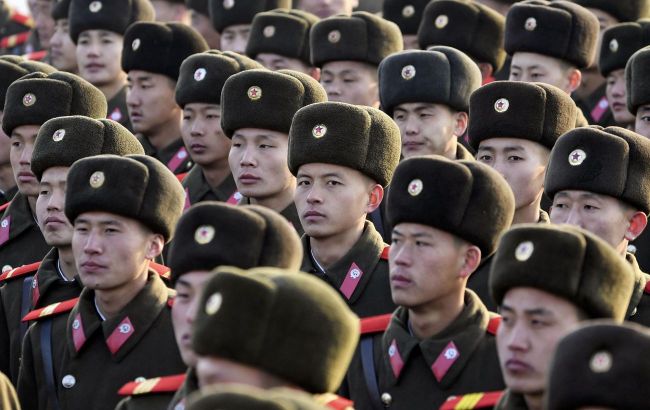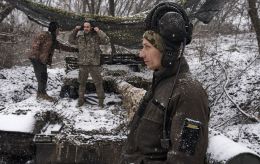Russia unlikely to confirm presence of North Korean troops in Kursk region - ISW
 Photo: Russian officials and media have not admitted the presence of DPRK troops in Russia (Getty Images)
Photo: Russian officials and media have not admitted the presence of DPRK troops in Russia (Getty Images)
North Korean soldiers were recently confirmed to be involved in combat operations in the Kursk region. However, Russia will likely avoid addressing this information, according to the Institute for the Study of War (ISW).
Before reaching the conclusions, analysts reviewed recent developments. On December 16, US National Security Council Spokesperson John Kirby confirmed that North Korean forces are participating in fighting and suffering casualties in the Kursk region. According to him, the United States observed North Korean soldiers being moved from secondary lines in the Kursk area to the front line over the past several days.
The same day, Pentagon Spokesperson Major General Patrick Ryder stated that North Korean soldiers had been killed or wounded during combat in the Kursk region. However, he did not specify the number of casualties.
Ukrainian President Volodymyr Zelenskyy also commented on the situation. He reported that Russian forces are attempting to conceal the losses among North Korean troops. Additionally, they are reportedly burning the faces of dead soldiers to hide their presence in Russia.
The Ukrainian president further added that Russian troops forbid North Korean soldiers from showing their faces during training in Russia. They are also trying to remove any video evidence of North Korean forces operating within Russian territory.
"Ukrainian military officials and intelligence sources have previously noted that the Russian military attempted to disguise North Korean soldiers as Russian forces from the Republic of Buryatia," the ISW reported.
ISW's conclusions
Analysts have not observed Russian officials or state media acknowledging the presence or participation of North Korean soldiers in combat operations in the Kursk region.
Based on this, analysts conclude that the Kremlin will likely continue avoiding reports on the deployment of North Korean forces.
"Doing so would tacitly acknowledge that Russia needs foreign troops to recapture its own territory and invalidate Russian President Vladimir Putin's claims that the Ukrainian incursion into the Kursk region resulted in high Russian recruitment rates," the analysts summarized.
As a reminder, yesterday, Andrii Kovalenko, head of Ukraine's Center for Countering Disinformation, stated that North Korean troops in the Kursk region do not understand the threat posed by drones.
According to him, they reacted rather oddly and lacked a visual awareness of the danger. This, in turn, may indicate inadequate training of North Korean forces in UAV tactics.

